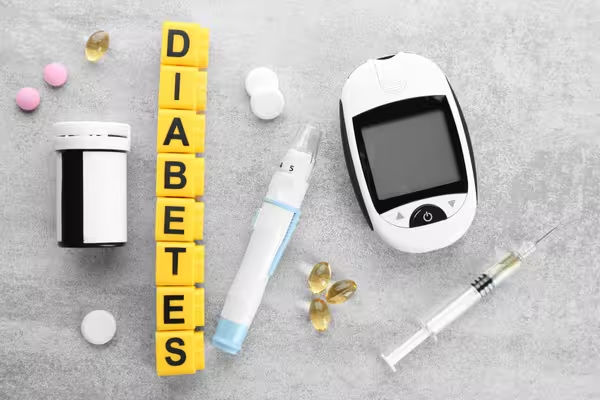Living with diabetes doesn’t mean giving up your quality of life. With the right information, daily habits, and medical support, it’s possible to maintain stable blood sugar levels and feel well every day. In this article, we’ll explore the most important do’s and don’ts that can make a difference in your diabetes care.
✅ What to Do

1. Stay Active
Regular physical activity helps manage blood sugar, control weight, and reduce the risk of complications. The CDC recommends 30 minutes of moderate exercise at least five days a week. Walking, swimming, dancing, or any activity you enjoy can become a powerful habit. Moving your body improves your health more than you think.

2. Take Your Medications and Monitor Blood Sugar
Missing doses or not understanding your treatment plan can put your health at risk. Take your medications as prescribed and check your glucose levels regularly to understand how your body reacts to food, stress, and exercise. If you’re unsure about your treatment, talk to your doctor or pharmacist.

3. Get a Flu Shot
People with diabetes are more likely to be hospitalized from the flu. High blood sugar can weaken the immune system and increase the risk of serious complications. Getting vaccinated early in the flu season is one of the best ways to protect yourself.

4. Prioritize Sleep
Lack of sleep can increase hunger and make blood sugar harder to control. It also affects decision-making and leads to poor food choices. Aim for at least 7 hours of sleep per night to support your metabolism and overall well-being.

5. Ask for Support
Whether it’s emotional support, nutrition advice, or help with managing medications, don’t go through it alone. Understanding your condition and building a support system can significantly improve your results.
❌ What Not to Do

1. Avoid Sugary Drinks
Sodas, sweetened teas, energy drinks, and sports drinks are packed with sugar and can spike your blood sugar quickly. Just one drink can have more than 40 grams of sugar. Water and unsweetened drinks are always better options.

2. Don’t Eat Straight from the Bag
Snacking from a bag leads to overeating. Even small portions of chips or crackers can add up fast. Instead, serve a portion in a bowl so you can control how much you’re eating.

3. Don’t Overload on Pasta or Rice
Large portions of carbs with little protein or vegetables cause blood sugar spikes and don’t keep you full. Choose balanced meals with fiber, lean proteins, and healthy fats to support blood sugar control.

4. Don’t Skip Meals
Skipping meals, especially while taking medication, can cause blood sugar crashes (hypoglycemia). Eating regular, balanced meals helps you avoid highs and lows and keeps your energy stable throughout the day.

5. Don’t Be Afraid
A diabetes diagnosis can feel overwhelming at first, but it doesn’t have to stop you from living your life. Many people learn to manage it successfully with small lifestyle changes. Educate yourself, carry a small source of sugar for emergencies, and remember—you are not alone.
🧠 Final Thoughts
Diabetes management goes beyond medication. It’s about learning how your body works, making smarter choices, and creating a routine that supports your health. With knowledge and consistency, living well with diabetes is absolutely possible.



